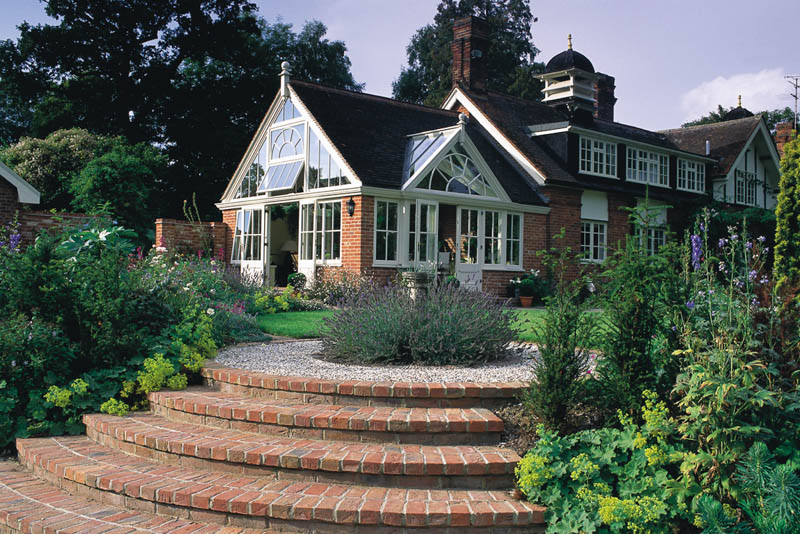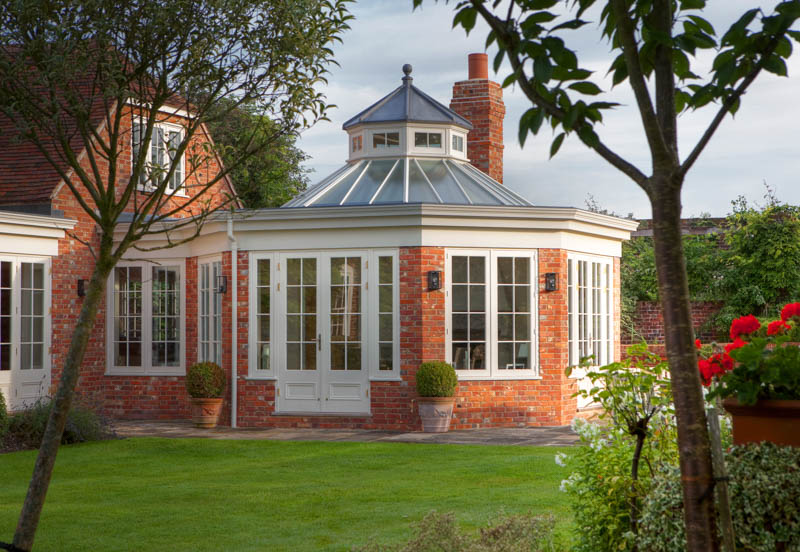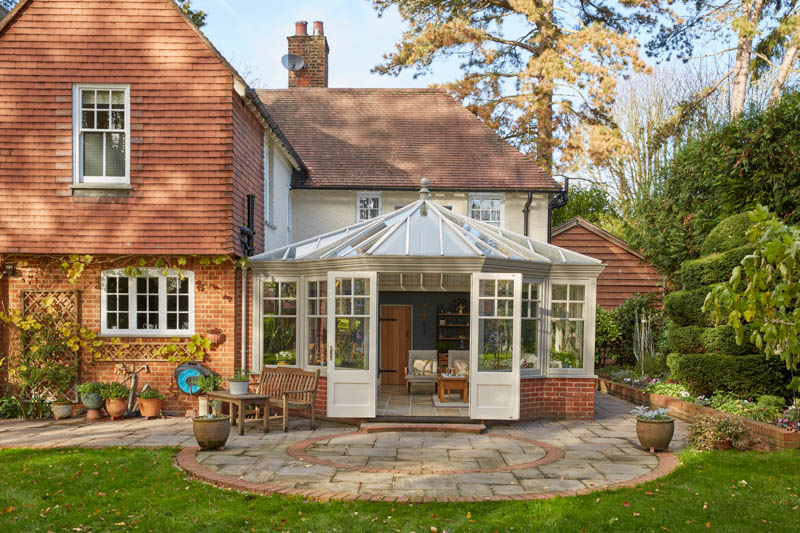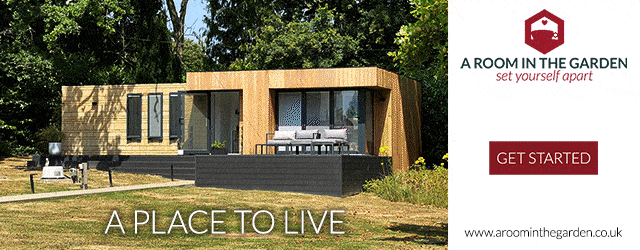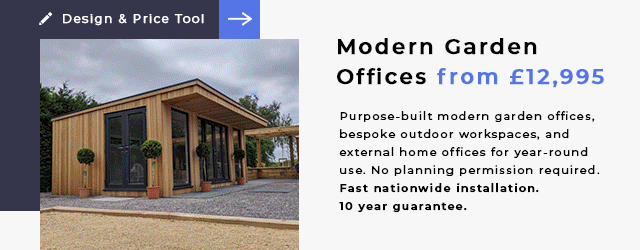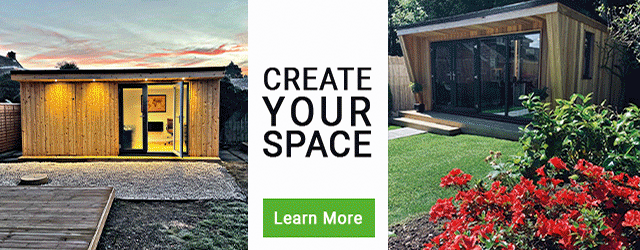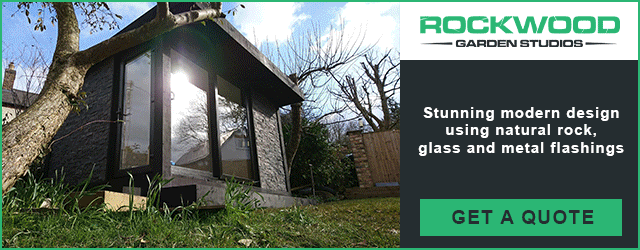Interesting guest post by Westbury Garden Rooms explaining the differences between the three types of luxury garden room extension they offer: conservatories, orangeries & garden rooms.
Every garden room extension has two vital functions; to create more space within your home and to make you feel more connected to your garden. Most extensions can achieve this, but if you want to do it well then invest in something a little more luxurious. You’ll have a beautifully balanced, functional room that blends in perfectly with the rest of your home and lasts for years to come.
One of the first things to consider is which type of garden room would work best. While conservatories, orangeries, and pool-houses can all be termed as ‘garden room extensions’, the amount of glazing, timber, and masonry materials used to build the structure can help define the different styles.
The garden room
A garden room is usually a semi-glazed extension with a roof made from tiles, rather than glazing. Looking like a part of the building it’s adjoined to rather than an additional add-on, all the details should match with those of the main house. Garden rooms will typically have a high roofline and a dramatic glazed gable which looks spectacular and fills the space with plenty of natural light.
The orangery
Traditionally associated with the growing of citrus plants during the winter, orangeries were a symbol of wealth and prestige among the elite in the 17th century. A modern-day orangery is a timeless addition to any property that still carries an air of elegance. Consisting of semi-glazed walls, an orangery will typically have a roof lantern built on top of a flat roof which lets the natural light stream into the room below. Instead of feeling cold or stuffy, it should be comfortable and inviting throughout the seasons, feeling cool in the summer and warm in the winter.
The conservatory
Conservatories will typically feature a considerable amount of glazing, with fully glazed walls and a glazed roof set on a brick foundation. They are commonly made with a uPVC frame but a timber conservatory achieves a more traditional style. Ideal for those wanting to completely connect with the great outdoors, a conservatory will offer the most uninterrupted views of their garden. Essentially the structure allows for the extension to be filled with as much light and warmth as possible, but this has led to problems in the past with the rooms overheating during the summer. Roof vents help to improve circulation, making it feel cooler in the warmer weather.
Investing in a luxury garden room
No matter what style you choose, ultimately a luxurious garden room should be an investment that will add to your property’s value and change the way you use the space within your home, so quality is vital to keep it looking good for years to come. The key to building a long-lasting extension is to choose a superior, premium product that has been expertly designed and built with a luxury finish.
One company which has been dedicating itself to building unrivalled extensions is Westbury Garden Rooms. With 30 years’ experience, they have been delivering architecturally-led designs using state of the art technology along with traditional hand-crafted joinery techniques and exceptional attention to detail.
Since Westbury focuses on producing perfectly proportioned designs, their garden rooms bring light, flow, and balance to the home. Their designers carefully consider how every detail of the extension should work in harmony with the main house, resulting in a garden room that blends in seamlessly, as if it was meant to have been a part of the property all along.
Accoya timber
The choice of materials also plays a big part in the longevity of a garden room extension. Modified softwood such as Accoya® is just about as durable as wood can be and far exceeds traditional, solid hardwood. Due to the chemical process the wood goes through, swelling and shrinkage are reduced which means that the garden room will last a lifetime. Accoya® is indigestible to insects and virtually rot-proof, making it easy for homeowners to maintain. In addition to this, it’s a highly sustainable, environmentally friendly material.
Their garden rooms are built to stand the test of time because Westbury never cut corners or overlook the importance of using quality materials, right down to the very last detail. Choosing the right paint ensures optimum longevity, and the paint that Westbury use generally lasts between seven to ten years depending on how exposed the structure is to the elements. By using a water-based microporous paint that is specifically formulated for outside use on timber and is resistant to bacteria, mould and UV damage, Westbury ensures a long-lasting and crisp finish. All that’s required from the homeowner is to give the paintwork a clean once a year with water and a cloth.
Ironmongery
Locks, door handles, and other ironmongery fittings are another perfect example of those unassuming details that can elevate the quality of a garden room extension and bring an element of grandeur to the design. Ironmongery should feel solid and secure while complementing the style of the interior, and Westbury believes that only the finest, functional, British-made products should be specified every time to ensure a luxurious finish.
Bringing the outside in
A beautiful garden room will bring the outside in, completely transforming your home with a bright and airy interior that creates a coherent connection between your house and your garden. By designing a carefully balanced and functional space while paying attention to the subtle elements, a garden room or orangery extension can be the height of luxury.


